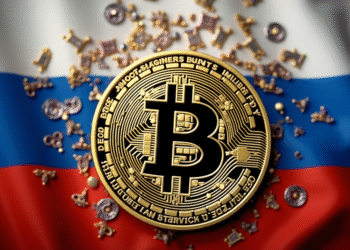Blockchain for AI-generated content is becoming a crucial element in addressing the challenges posed by synthetic media and deepfakes. As the number of AI-generated assets continues to rise, concerns over AI content authentication and digital media trust have surged. This revolutionary blockchain technology acts as a secure ledger that can verify the originality and ownership of AI-produced content, enhancing transparency in a landscape fraught with misinformation. Moreover, with the rise of deepfake verification needs, blockchain can provide definitive proof of authenticity, effectively combating potential fraud. In the face of growing AI ownership issues, implementing blockchain solutions can ensure a credible framework for the digital content ecosystem.
In today’s digital landscape, the emergence of decentralized verification systems is vital for maintaining credibility and trust in virtual media. As AI-generated works proliferate, the necessity for robust authentication methods has never been more pressing. Utilizing distributed ledger technology can facilitate clear ownership tracking and mitigate risks associated with deceptive practices, such as deepfakes. By establishing a reliable infrastructure for verifying digital assets, the industry can better navigate the complexities of AI’s role in content creation. Emphasizing transparent verification can empower content creators and safeguard against the rising tide of digital misinformation.
The Role of Blockchain Technology in AI-generated Content
Blockchain technology serves as a powerful solution for authentication in the realm of AI-generated content. By using decentralized ledgers, blockchain provides a transparent and tamper-proof method for recording the creation and modifications of digital assets. This capability is especially vital in an age where deepfake technologies can fabricate hyper-realistic representations of individuals, leading to severe implications for trust in media. Each piece of media generated by AI can have its ownership and authenticity validated through blockchain, significantly reducing fears surrounding unauthorized use and misrepresentation.
Furthermore, the integration of blockchain into the verification process addresses AI ownership issues that currently plague the industry. As AI continues to produce an increasing volume of creative work, the question of legal ownership becomes more complex. By establishing a clear, immutable record of creation via blockchain, content creators can confidently assert their rights over their work, while consumers can verify the authenticity of what they encounter online. This dual mechanism of ownership and verification is crucial for maintaining integrity within digital ecosystems.
AI Content Authentication as a Trust Builder
As AI-generated media becomes more prevalent, there is an urgent need for robust AI content authentication mechanisms. The reliability of digital media heavily relies on the ability to trace its origins and validate its content—teething issues that can be mitigated by incorporating blockchain technology. The decentralized nature of blockchain not only enhances security but also fosters greater trust among consumers who are growing increasingly wary of disinformation and manipulated media.
Moreover, effective AI content authentication safeguards against the rise of deepfake materials that can easily mislead audiences. By utilizing blockchain to certify the integrity of content, businesses and creators can demonstrate a commitment to ethical practices, thereby bolstering their reputations. In an environment where misinformation can spread like wildfire, prioritizing content authentication through blockchain can help restore faith in digital media, which is essential for both consumer trust and industry sustainability.
The Intersection of Trust and Technology in Digital Media Production
The intersection of technology and trust is pivotal in reshaping how digital media is produced and consumed. As the sophistication of AI-generated content increases, traditional methods of ensuring content integrity become inadequate. This challenge necessitates a shift towards more advanced authentication frameworks that leverage blockchain technology. Blockchain’s capacity for secure, transparent ownership records provides a new foundation for content verification, thus confronting the issues of authenticity head-on.
In a world increasingly dominated by synthetic media, the businesses that embrace these next-generation solutions will likely stand out as leaders in reliability. By ensuring that digital representations are well-documented on the blockchain, platforms and content creators can provide users with verifiable proof of authenticity. This not only enhances the credibility of the content but also fosters a renewed sense of trust among consumers who are weary of the tricks played by algorithm-driven media manipulation.
Deepfake Verification: A Necessity in the Age of AI
Deepfake verification has become an essential aspect of maintaining trust in AI-generated content, particularly as the technology behind deepfakes becomes more accessible and sophisticated. By applying blockchain technology as a verification tool, content can be tracked from creation to consumption. This makes it incredibly difficult for malicious actors to manipulate or repurpose AI-generated media without leaving a digital fingerprint of their actions.
Implementing deepfake verification on a blockchain not only protects individual creators but also shields industries that are highly affected by misinformation—such as journalism and finance. The capability to authenticate content at its source ensures that whether you’re reading a news article or viewing a video, you can trust the information presented. As fears of digital fraud grow, such a system becomes crucial for establishing the legitimacy of digital interactions and preventing the erosion of public trust in media.
Navigating AI Ownership Issues in a Blockchain Framework
Navigating the murky waters of AI ownership issues requires a robust framework that can delineate creation rights amidst the complexities of machine-generated content. Without established intellectual property laws for AI-produced media, the lines remain blurred—who owns the AI-generated content? Blockchain has the potential to provide clarity, as it allows for the creation of immutable records detailing the original creator and modifications made over time. This transparent approach helps resolve disputes that could arise from unregulated use.
By incorporating blockchain technology, stakeholders can define ownership rights clearly, making it easier for individuals and companies to manage their assets in a digital landscape ultra-sensitive to issues of authenticity and rights. As creators use AI tools, having a solid framework to refer to regarding ownership helps mitigate risks of legal conflict and reinforces the legitimacy of the marketplace for their works. Overall, the future of AI ownership could be substantially enhanced through strategic blockchain implementations.
Digital Media Trust: The Blockchain Advantage
The current climate surrounding digital media trust hinges on the reliability of content and the transparency of ownership. Blockchain offers significant advantages in fostering this trust by allowing for an unalterable ledger that documents the life cycle of digital media. As consumers grow increasingly skeptical about the veracity of online content, having a mechanism to verify sources and authenticity is paramount.
Moreover, with industries grappling with the rapid evolution of AI technologies, blockchain presents a means to establish credibility in digital media. As the ecosystem becomes more stakeholder-driven, enhanced transparency through blockchain allows content creators to prove their work’s originality and prevent unauthorized manipulation, helping to cultivate a trustworthy environment for both creators and consumers alike.
The Future of Decentralized Verification Frameworks
With the ongoing rise of AI-generated content, the future of verification will likely be defined by decentralized frameworks that integrate blockchain technology. These systems promise to provide a transparent and secure means of ensuring content authenticity, fostering collaboration across various industries. A robust decentralized verification framework allows for the seamless tracking of digital assets, from creation to distribution, ensuring that ownership records are indisputable.
As we advance further into an era dominated by AI, the ability to provide proof of authenticity not only guards against fraud but also nurtures an ecosystem where innovation can thrive amidst heightened skepticism. Embracing such frameworks will be crucial in paving the way for sustainable growth in sectors affected by AI, enabling robust interactions that inspire confidence and creativity in the digital realm.
Blockchain: A Shield Against AI-driven Misinformation
As the pace of AI advancements accelerates, so too does the potential for misinformation to spread. Blockchain technology can act as a defense against the tidal wave of AI-generated disinformation by providing a secure method of content authentication. By using immutable records to track the origins of digital media, blockchain enables stakeholders to verify facts and trace back to the original creators, reducing the likelihood of misinformation permeating through the digital landscape.
The role of blockchain in combating AI-driven misinformation is increasingly critical, particularly concerning news and media that influence public opinion. By ensuring content authenticity and ownership is protected, blockchain can restore trust in journalism and media outlets by holding them accountable to their audiences. In an era where faulty information can lead to significant societal consequences, embracing blockchain as a truth-guarding mechanism is not only prudent but essential.
Creative Industries’ Responsibility in Ensuring Authenticity
The responsibility of creative industries to ensure the authenticity of AI-generated content and combat misinformation has never been greater. As consumers demand accountability and transparency, industry stakeholders must adopt robust mechanisms—such as blockchain—to guarantee authenticity and ownership. The success of creative outputs hinges on maintaining trust among audiences, and blockchain provides an effective safeguard against the risks associated with deepfakes and other deceptive media.
Moreover, adopting blockchain technology can provide a competitive edge for businesses in creative sectors. By marketing their commitment to authenticity, companies can attract socially conscious consumers who value transparency. As brands integrate blockchain for authentication purposes, they not only protect themselves from potential legal and reputational ramifications but also position themselves as pioneers in a rapidly evolving digital landscape, reinforcing their credibility and public trust.
Challenges and Solutions in Blockchain Adoption for AI Media
While the integration of blockchain technology in AI media creation has numerous benefits, the journey is not without challenges. Issues such as technological literacy, costs of implementation, and the need for industry-wide consensus can hinder widespread adoption. Furthermore, the existing complexities of blockchain itself—such as scalability and energy consumption—represent barriers that must be addressed to make adoption feasible across various sectors.
Nonetheless, the advantages of using blockchain for authentication far outweigh these challenges. Developing solutions such as hybrid blockchain systems and engaging in collaborative initiatives can help streamline processes and lower entry barriers. Education and investment in technology will also play crucial roles in facilitating the integration of blockchain in the domain of AI-generated content, ultimately enhancing the framework for digital media trust and integrity.
Frequently Asked Questions
How can blockchain technology enhance the trustworthiness of AI-generated content?
Blockchain technology enhances the trustworthiness of AI-generated content by providing an immutable ledger that records the creation and modification history of digital assets. This ensures transparent ownership tracking and enables consumers to verify the authenticity of AI-generated media, thereby restoring trust in an era where deepfakes and synthetic media are rampant.
What role does blockchain play in verifying ownership of AI-generated media?
Blockchain plays a crucial role in verifying ownership of AI-generated media by creating a secure, decentralized framework for recording intellectual property rights. This allows content creators to establish proven ownership, track usage, and resolve potential disputes over digital assets, effectively addressing AI ownership issues.
Can blockchain help prevent manipulation of AI-generated content?
Yes, blockchain can help prevent manipulation of AI-generated content by providing a tamper-proof history on-chain. Any modifications to AI-generated media are logged, which helps verify the integrity of the content and protects against unauthorized alterations, ensuring consumers receive authentic digital media.
How does blockchain technology address AI content authentication challenges?
Blockchain technology addresses AI content authentication challenges by enabling decentralized verification networks. These networks allow AI-generated content to be authenticated across multiple platforms without relying on a single authority, thus combating misinformation and enhancing digital media trust.
What implications does blockchain have for deepfake verification?
Blockchain has significant implications for deepfake verification by offering a reliable method to certify the authenticity of digital media. By recording the origin and modifications of deepfake content on the blockchain, stakeholders can establish credibility, reducing the risk of deceptive media being mistakenly accepted as real.
What are the privacy benefits of using blockchain for AI-generated content?
The privacy benefits of using blockchain for AI-generated content include enhanced data security through decentralized storage and traceable verification processes. This approach minimizes the risk of data breaches and unauthorized access, addressing consumer concerns about online privacy and digital media trust.
How can AI-generated digital media benefit from decentralized verification frameworks?
AI-generated digital media can benefit from decentralized verification frameworks by ensuring that content is reliably authenticated and transactions are transparently recorded. This framework enables cross-industry adoption, enhancing the overall integrity and trustworthiness of digital media in a rapidly evolving technological landscape.
What challenges do current intellectual property laws face regarding AI-generated content?
Current intellectual property laws face challenges in addressing AI-generated content due to gaps in regulation that complicate ownership and rights. Without clear guidelines, disputes over who owns AI-generated media—whether the input provider, the model creator, or no one—are likely to escalate, necessitating the integration of blockchain for effective resolution.
How does blockchain support content creators in the evolving AI landscape?
Blockchain supports content creators in the evolving AI landscape by providing a platform for secure ownership registration and transparent tracking of their work. This empowers creators to effectively protect their intellectual property and pursue fair compensation for their contributions in a market increasingly influenced by AI-generated content.
What potential does blockchain technology hold for the future of AI-generated content?
Blockchain technology holds tremendous potential for the future of AI-generated content by establishing a foundation for authenticity and trust. As AI technologies continue to advance, implementing blockchain will be essential for ensuring secure verification processes, protecting intellectual property rights, and mitigating risks associated with synthetic media.
| Key Point | Explanation |
|---|---|
| Proliferation of AI-Generated Content | AI-generated content is becoming more common, prompting concerns over trust and authenticity in digital media. |
| Concerns Over Misinformation | Growing worries about deepfakes and AI’s influence on storytelling and news media. |
| Lack of Regulation | Current laws inadequately address the ownership and use of AI-generated content. |
| Role of Blockchain | Blockchain can provide verification, ownership tracking, and reduce the risk of fraud. |
| Ethical Implications | AI-generated content risks damaging industries linked to media integrity and public trust. |
Summary
Blockchain for AI-generated content is essential as it addresses the urgent need for trust in the rapidly evolving landscape of digital media. With the growing concerns surrounding misinformation and deepfakes, blockchain technology presents a robust solution for verifying the authenticity and ownership of AI-generated creations. By implementing decentralized verification frameworks, stakeholders can ensure a secure and transparent media environment. As we move forward, integrating blockchain into the management of AI-generated content becomes not only necessary but critical for maintaining credibility and safeguarding the future of digital information.













